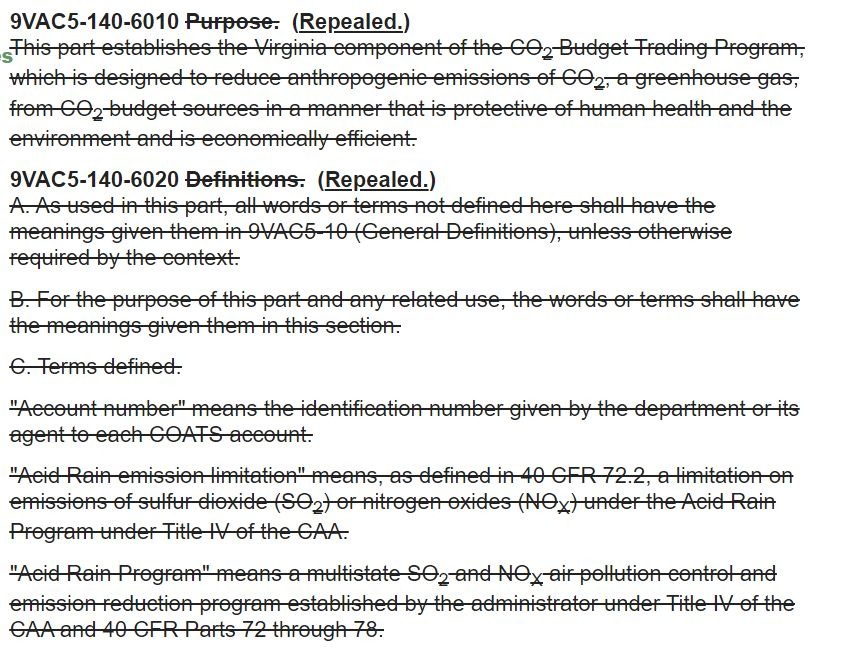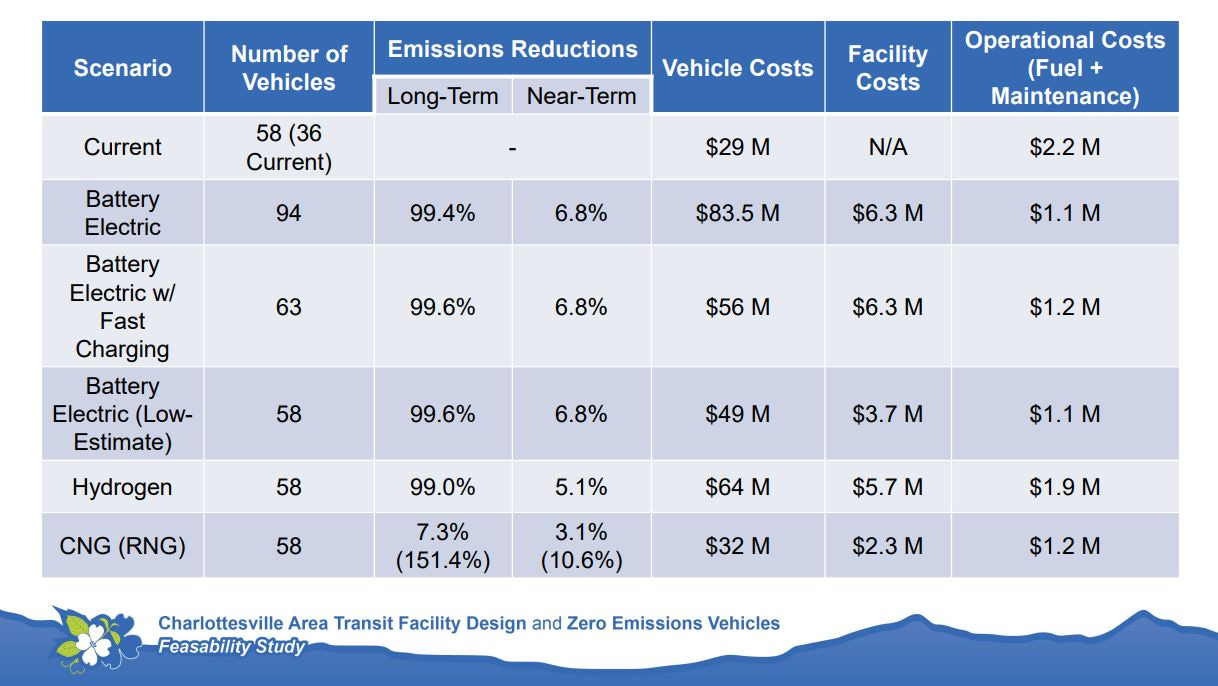Why do we call this month August? As someone born in this month, I have to confess I have no idea. Why do we name months? Will there ever be any changes? Why do we celebrate birthdays? Why can’t I just simply look up the definition? None of the answers to these questions can be found this edition of Charlottesville Community Engagement, but perhaps you’ll learn something anyway.
On today’s program:
The comment period is open for the finalization of a rule change that would pull Virginia out of a carbon cap and trade program
CAAR reports a continued trend of lower sales and higher prices for homes in the area
Charlottesville City Council gets a briefing on the status of transitioning to alternative fuels for Charlottesville Area Transit
Want to learn more about things in the community? Sign up for free, but consider becoming a paid subscriber to support this newsletters continued existence!
First shout-out: Rivanna Conservation Alliance’s Community Watershed Cleanup
In today’s first Patreon-fueled shout-out: Mark your calendar for the 4th Annual Rivanna River Round-Up on Saturday, September 16th! Volunteers of all ages can participate in a community-wide cleanup across more than a dozen sites in the Rivanna River watershed, clearing litter from our rivers and streams. Registration for the Rivanna River Round-Up will open on August 21st.
Do you know of a trail, stream, or other accessible location in the Rivanna River watershed that could use a trash cleanup? Let the RCA know by suggesting a site for this year’s event. Just answer a couple of questions using a form on their website and you might see your suggestion become an official Round-Up cleanup site!
Comment period open for Virginia’s withdrawal from carbon trading program
Governor Glenn Youngkin signed Executive Order #9 just hours after taking the oath of office in January 2022. The document signaled the administration’s desire to withdraw from the Regional Greenhouse Gas Initiative, a multi-state compact that requires power producers to purchase credits if they exceed certain caps on the amount of emissions released into the atmosphere.
“Virginia’s participation in the Regional Greenhouse Gas Initiative (RGGI) risks contributing to the increased cost of electricity for our citizens,” reads that executive order.
Virginia joined RGGI in 2021 after the General Assembly passed legislation requiring that action as a way of reducing the state’s greenhouse gas emissions. Forty-five percent of the state’s proceeds are required by law to go to flood protection programs.
The night Youngkin was elected, Republicans won control of the House of Delegates but Democrats retained a narrow lead in the Senate. Legislation to remove Virginia from RGGI failed and so Youngkin pursued executive means.
That takes the form of repealing a rule adopted by the State Air Pollution Control Board. On June 7, the Board voted 4-3 to repeal the rule and that is now making its way through the regulatory process as viewable on the Virginia Regulatory Town Hall. Public comments are currently being taken. At publication time, all eight comments are in favor of Virginia staying in RGGI.
This week, the Southern Environmental Law Center issued a Notice of Appeal to the Virginia Department of Environmental Quality stating they would file a lawsuit in Fairfax Circuit Court challenging the executive withdrawal.
“There are still serious questions as to whether the Air Board actually has the authority to pull the state out of RGGI,” SELC Senior Attorney Nate Benforado is quoted in a press release.
Where do candidates for the General Assembly stand? This is one issue to track as election day looms.

For more information from previous editions:
Charlottesville awarded $153K for flood study from RGGI funds, October 6, 2021
Latest auction brings in $85.6M in funding for Virginia, December 7, 2021
Virginia nets $74.2 million in latest carbon, March 14, 2022
Virginia receives $76.4 million in June’s cap-and-trade auction, June 9, 2022
Youngkin administration outlines plan to leave cap-and-trade system, September 1, 2022
Virginia Supreme Court rules in favor of utility charge for carbon reduction, October 31, 2022
Realtor group reports continued trends of slower home sales
Home prices in the Charlottesville area are continuing to increase while overall sales activity remains sluggish. That’s the main takeaway of the latest quarterly report from the Charlottesville Area Association of Realtors.
“The median sales price in the CAAR housing market during the second quarter was $445,900, up seven percent from last year, a gain of $28,050,” reads the executive summary of the report, which covers April through June.
There were 232 fewer home sales in the period compared to 2022 and three percent fewer active listings.
“The sharp slowdown in market activity is being driven by a combination of factors including tight inventory conditions and climbing mortgage rates,” the report continues.
However, sales prices increased. That is a figure to track as you consider future property assessments in all of the various localities.
Sale prices were up eleven percent in Albemarle, seven percent in Louisa County and three percent in Nelson County. They declined 25 percent in Nelson County and stayed more or less the same in Charlottesville and Greene County.
The median price of a home in Albemarle County is $530,000 compared with $320,000 in Nelson County.
The report also notes that building permits are above national averages with 531 permits issued in the Charlottesville Metropolitan Statistical Area from January through May. Two-thirds are for single family homes. However, that is below 2022 levels.
Second shoutout: August 10 webinar on Safe Routes to School
In today’s second Patreon-fueled shout-out: On August 10 at 6:30 p.m., Livable Cville and Charlottesville United for Public Education are co-hosting a webinar on a very important topic as the school year looms. The event will feature Ben Chambers, Transportation Planner for the city of Charlottesville, and Amanda Korman, Community Relations Liaison for Charlottesville City Schools.
This webinar will provide Charlottesville City Schools families and staff with information about transportation as the new school year begins. There will be a Q&A at the end. Sign up today for this free event!
City Council gets update on study on future fuels for CAT
Most of the vehicles used by Charlottesville Area Transit to carry passengers around the community currently use diesel, but a study is underway to come up with alternatives to how to transition the fleet to ones that emit fewer or no greenhouse gas emissions.
At their meeting on July 17, 2023, Council learned from CAT director Garland Williams that the scope of the study was extended.
“Eleven months ago when we started down this process, it was a study just directed by CAT,” Williams said. “Since that we did some coordination between other departments so we added environmental sustainability. We also added Neighborhood Development Services.”
The city hired Kimley Horn to conduct the work. Williams said that firm conducted a similar study for Jaunt which was completed last December. (view the Jaunt study)
Williams said the goal is to include zero-emissions vehicles as part of the mix.
“But we also want to make sure that ultimately we are going to be reliable because ultimately that’s what’s going to make sure that we have the greatest impact on this region,” Williams said.
After a year of work, all that’s available for review is a feasibility study according to project manager Mike Shindledecker of Kimley Horn. (view the presentation to Council)
“We do not have a recommendation yet,” Shindledecker said. “This is determining what we can do, what is capable, how do we get to zero emissions with the different options available. What are the levers we can push and pull.”
At the same time, Kimley Horn is also looking into space needs for CAT. If more buses are needed, there will need to be room to park them.
The plan to get to zero emissions buses is expected to be completed in the fall so that the agency can seek grants to pay for new vehicles.
To recap, Charlottesville has a goal to reduce greenhouse gas emissions by 45 percent by 2030 and to be carbon-free by 2050. The scenarios presented to Council are based on a “system optimization” conducted by two years ago that has not been implemented. To recap, here are a few articles:
Council briefed on proposed transit changes, June 2, 2021
Charlottesville Area Transit holds first input session on new routes, July 19, 2021
“Good planning says we should design a system that meets the needs of our community first and then work with technology in order to implement that system,” Shindledecker said. “That’s the process we took and that’s why we’re building off of the system optimization.”
Yet, CAT is also embarking on a new Transit Strategic Plan which “presents CAT with an opportunity to evaluate and update our services and network to respond to changes in our community.” Will that make this fuel study obsolete? Either way, Shindledecker reviewed the types of vehicles.
Both internal combustion engines and hybrid electric vehicles produce emissions. Battery electric vehicles and fuel cell electric vehicles do not directly do so. Fuel cells use hydrogen through an electrochemical process to charge batteries while in use.
There are several scenarios:
Transition existing diesel fleet to clean diesel
Switch to battery electric vehicles. This also includes three separate scenarios for specifics of how to make the transition. One of them would require more buses than usual to allow for recharge time. Another assumes fast-charging sites during layovers, but the technology isn’t quite there yet.
Switch to hydrogen which would require construction of a cryogenic storage and fueling facility.
Switch to compressed natural gas which would require a new fueling facility.
Some other factors to keep in mind as we wait for the full study to be published.
Batteries with larger range are bigger and reduce the capacity for passenger space.
Batteries have less capacity in lower temperatures.
There are concerns about whether there is a sufficient workforce to be able to work on vehicles with alternative fuels.
Routes with lots of hills are more challenging for batteries as more charge is required to make the climb.
Federal procurement rules require vehicles to be used for their entire useful life before replacements can be scheduled. Federal funding makes up the vast majority of the cost of each bus.
“Their parameters are still 12 years and 500,000 miles,” Williams said. “We have to meet not one but both before we able to replace. The majority of our fleet right now are more than 14 years old. We have ten hybrid vehicles.”
Williams said those hybrid vehicles were not really ready to be on the road, but CAT can’t dispose of them until they’ve been sufficiently used.
“Hybrid vehicles stay in the shop more than they are on the road,” Williams said. “And that’s the problem with making sure we need to get to zero emissions. I’m also really concerned about reliability.”
Recommendations will come back to Council within the next 90 days, according to Williams.
Reading material:
After being first in Virginia to use it, Arlington hits brakes on ranked-choice voting, Graham Moomaw, Virginia Mercury, July 18, 2023
Virginia enviro groups file notice they will challenge Youngkin’s RGGI withdrawal, Charlie Paullin, Virginia Mercury, July 31, 2023
Albemarle Supervisors urge for speed cameras in school zones, Gretchen Stenger, CBS19, August 1, 2023
How Youngkin’s plan to withdraw Virginia from the Regional Greenhouse Gas Initiative affects us, Jessie Higgins, Charlottesville Tomorrow, August 1, 2023
Study working on recommendations to improve part of Barracks Road, CBS19, August 1, 2023
Concluding thoughts for #561
My mental health really does increase with the ability to publish new editions of this newsletter. I want very much for every single person on the planet to have the opportunity to do what they love. Paid subscribers are the main reason I’m able to continue to do this work and to keep planning for the future. There’s a lot people need to know things and I’m glad to be part of the information landscape in the community.
At this point, there’s no regular production schedule except for the Week Ahead which comes out on Sundays. To find out the latest, check out my Notes section on the Substack website or app.
And if you want to help keep this going, do consider a subscription through Substack. If you do at $5 a month, $50 a year, or $200 a year level, Ting will match your initial payment. They’re also gearing up for the next sporting year at the University of Virginia including their continued sponsorship of both Scott Stadium and the John Paul Jones Arena.
And maybe you’re a UVA student looking for fast Internet. If you sign up for Ting at this link and enter the promo code COMMUNITY, you’ll get:
Free installation
A second month for free
A $75 gift card to the Downtown Mall


















Share this post